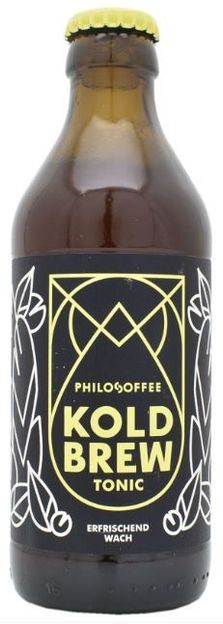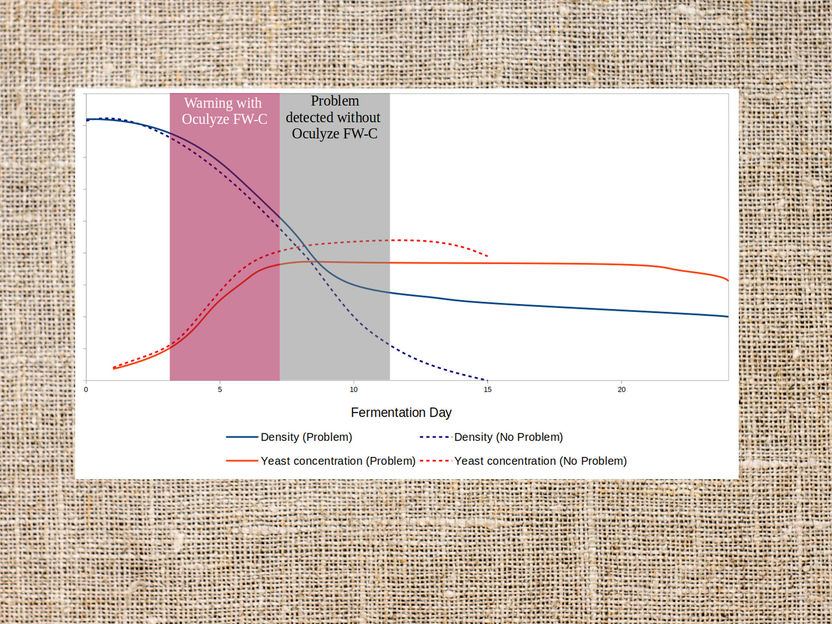Coffbucha - new spin-off of Kombucha?
Advertisement
According to Mintel research, fermented beverages have seen a global increase in recent years, mainly teas, juices and carbonated soft drinks. However, this could soon change with the appearance of the first Coffbuchas.

Koldbrew Tonic by Philosoffee (Germany) is described as a refreshing drink made from tonic water with nutty single-origin coffee with herbal and citrus extracts.
Mintel GNPD
Since all probiotics are lost when fermented coffee beans are roasted, there is particular potential for cold coffee Kombucha hybrids. These can be produced either by mixing Kombucha on a tea basis or by fermenting brewed coffee with sugar and a symbiotic culture of bacteria and yeast (English abbreviation: SCOBY). Both versions are ideal for the product development of ready-to-eat beverages that can be positioned appropriately with respect to the probiotics they contain.
Probiotics are demonstrably beneficial for intact intestinal health, which in turn is said to have a positive effect on general well-being. In Germany, for example, over a quarter of consumers are interested in coffee varieties with digestive properties.
Analogous to Nitro Coffee and Cold Brew Tonic, Kaffee-Kombucha also follows the trend towards carbonated, flavoured coffee-soft drink hybrids, which are ideal for afternoon consumption.
The British brand Equinox is an excellent example of this RTD segment: its coffee kombucha products are rich in antioxidants, naturally occurring fatty acids and enzymes. The manufacturer uses this in its advertising promise, which speaks of a "natural energy boost".
Espresso Kaffee-Kombucha by Equinox (UK): "We ferment coffee from Arabica beans with our special Kombucha culture. That means we don't just add coffee to the drink. Through this process, our coffee kombucha is as healthy as our green tea-based products."
Koldbrew Tonic by Philosoffee (Germany) is described as a refreshing drink made from tonic water with nutty single-origin coffee with herbal and citrus extracts.
Through fermented coffee beans to more delicate flavors
The fermentation of green coffee is also on the rise. For example, the American start-up Afineur has launched a new coffee brand called Cultured Coffee. The founders are both doctors in the field of biology, which is why they know exactly which microorganisms they have to add to the coffee before roasting. According to them, the added bacteria "devour" the bitter aromas of the green coffee and thus create a delicately soft and less sour taste. The beans are then roasted, which means that the probiotics are lost. However, this does not prevent Afineur from relying on other health positions: The manufacturer advertises that the beans are better tolerated than regular coffee due to the lower dose of digestive components.
Cultured Coffee from Afineur is said to have a softer, "purer" aroma. (Image source: EatCultured)
Japanese entrepreneur Koichi Higuchi has also developed a fermented variety of coffee using Koji moulds in an effort to develop a coffee that is less acidic. These are mainly known from Japanese cuisine and are used for the production of sake and miso pastes. According to Higuchi, Koji fermented beans have a lower acidity of normal coffee and are therefore easier to digest.
Mintel's conclusion
Coffbucha has the potential to mix up the RTD segment. Thanks to the probiotics they contain, such products on the one hand offer the possibility of relying on health-related positioning. On the other hand, the drink fits in with the currently trendy coffee-soft drink hybrids, which promise a "natural energy kick". For green coffee, manufacturers can take advantage of various fermentation processes for softer and less acidic flavours and market them accordingly. These varieties offer added value for regular coffee drinkers as well as for those for whom normal coffee otherwise tastes too bitter.
Note: This article has been translated using a computer system without human intervention. LUMITOS offers these automatic translations to present a wider range of current news. Since this article has been translated with automatic translation, it is possible that it contains errors in vocabulary, syntax or grammar. The original article in German can be found here.
































































